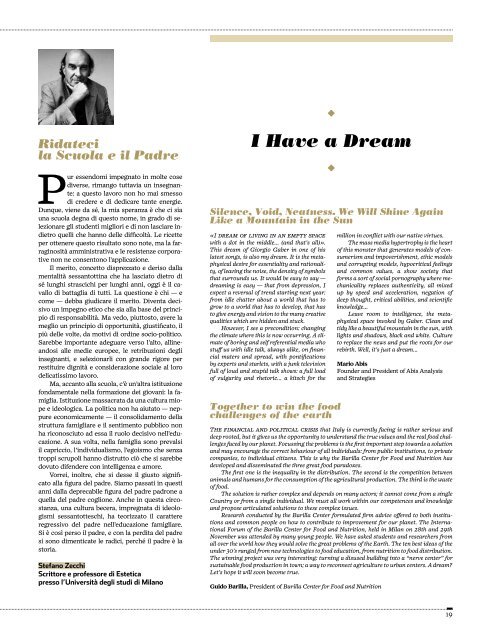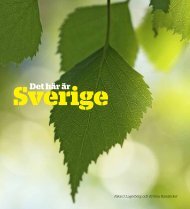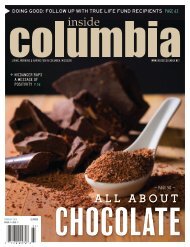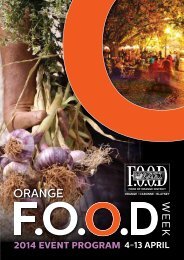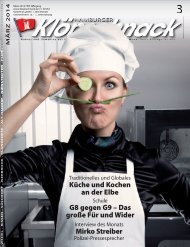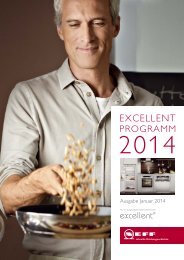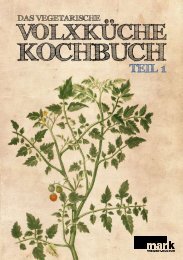Cortina Inverno
Eccoci arrivati al decimo numero di CORTINA.TOPic. Una bella strada, quella che abbiamo percorso assieme. Con un obiettivo interessante, quello di dar vita — cinque stagioni or sono — a una rivista dalla doppia vocazione: di approfondimento e promozione, capace di immortalare la Cortina che ci piace e di dar voce a chi la ama, guardando sempre al futuro, forti di un illustre passato.
Eccoci arrivati al decimo numero di CORTINA.TOPic.
Una bella strada, quella che abbiamo percorso assieme. Con
un obiettivo interessante, quello di dar vita — cinque stagioni
or sono — a una rivista dalla doppia vocazione: di approfondimento
e promozione, capace di immortalare la Cortina che
ci piace e di dar voce a chi la ama, guardando sempre al futuro, forti di un
illustre passato.
Create successful ePaper yourself
Turn your PDF publications into a flip-book with our unique Google optimized e-Paper software.
Ridateci<br />
la Scuola e il Padre<br />
Pur essendomi impegnato in molte cose<br />
diverse, rimango tuttavia un insegnante:<br />
a questo lavoro non ho mai smesso<br />
di credere e di dedicare tante energie.<br />
Dunque, viene da sé, la mia speranza è che ci sia<br />
una scuola degna di questo nome, in grado di selezionare<br />
gli studenti migliori e di non lasciare indietro<br />
quelli che hanno delle difficoltà. Le ricette<br />
per ottenere questo risultato sono note, ma la farraginosità<br />
amministrativa e le resistenze corporative<br />
non ne consentono l’applicazione.<br />
Il merito, concetto disprezzato e deriso dalla<br />
mentalità sessantottina che ha lasciato dietro di<br />
sé lunghi strascichi per lunghi anni, oggi è il cavallo<br />
di battaglia di tutti. La questione è chi — e<br />
come — debba giudicare il merito. Diventa decisivo<br />
un impegno etico che sia alla base del principio<br />
di responsabilità. Ma vedo, piuttosto, avere la<br />
meglio un principio di opportunità, giustificato, il<br />
più delle volte, da motivi di ordine socio-politico.<br />
Sarebbe importante adeguare verso l’alto, allineandosi<br />
alle medie europee, le retribuzioni degli<br />
insegnanti, e selezionarli con grande rigore per<br />
restituire dignità e considerazione sociale al loro<br />
delicatissimo lavoro.<br />
Ma, accanto alla scuola, c’è un’altra istituzione<br />
fondamentale nella formazione dei giovani: la famiglia.<br />
Istituzione massacrata da una cultura miope<br />
e ideologica. La politica non ha aiutato — neppure<br />
economicamente — il consolidamento della<br />
struttura famigliare e il sentimento pubblico non<br />
ha riconosciuto ad essa il ruolo decisivo nell’educazione.<br />
A sua volta, nella famiglia sono prevalsi<br />
il capriccio, l’individualismo, l’egoismo che senza<br />
troppi scrupoli hanno distrutto ciò che si sarebbe<br />
dovuto difendere con intelligenza e amore.<br />
Vorrei, inoltre, che si desse il giusto significato<br />
alla figura del padre. Siamo passati in questi<br />
anni dalla deprecabile figura del padre padrone a<br />
quella del padre coglione. Anche in questa circostanza,<br />
una cultura becera, impregnata di ideologismi<br />
sessantotteschi, ha teorizzato il carattere<br />
regressivo del padre nell’educazione famigliare.<br />
Si è così perso il padre, e con la perdita del padre<br />
si sono dimenticate le radici, perché il padre è la<br />
storia.<br />
Stefano Zecchi<br />
Scrittore e professore di Estetica<br />
presso l’Università degli studi di Milano<br />
I Have a Dream<br />
Silence, Void, Neatness. We Will Shine Again<br />
Like a Mountain in the Sun<br />
«I dream of living in an empty space<br />
with a dot in the middle... (and that’s all)».<br />
This dream of Giorgio Gaber in one of his<br />
latest songs, is also my dream. It is the metaphysical<br />
desire for essentiality and rationality,<br />
of leaving the noise, the density of symbols<br />
that surrounds us. It would be easy to say —<br />
dreaming is easy — that from depression, I<br />
expect a reversal of trend starting next year:<br />
from idle chatter about a world that has to<br />
grow to a world that has to develop, that has<br />
to give energy and vision to the many creative<br />
qualities which are hidden and stuck.<br />
However, I see a precondition: changing<br />
the climate where this is now occurring. A climate<br />
of boring and self referential media who<br />
stuff us with idle talk, always alike, on financial<br />
maters and spread, with pontifications<br />
by experts and starlets, with a junk television<br />
full of loud and stupid talk shows: a full load<br />
of vulgarity and rhetoric… a kitsch for the<br />
Together to win the food<br />
challenges of the earth<br />
million in conflict with our native virtues.<br />
The mass media hypertrophy is the heart<br />
of this monster that generates models of consumerism<br />
and impoverishment, ethic models<br />
and corrupting models, hypocritical feelings<br />
and common values, a show society that<br />
forms a sort of social pornography where mechanicality<br />
replaces authenticity, all mixed<br />
up by speed and acceleration, negation of<br />
deep thought, critical abilities, and scientific<br />
knowledge...<br />
Leave room to intelligence, the metaphysical<br />
space invoked by Gaber. Clean and<br />
tidy like a beautiful mountain in the sun, with<br />
lights and shadows, black and white. Culture<br />
to replace the news and put the roots for our<br />
rebirth. Well, it’s just a dream...<br />
Mario Abis<br />
Founder and President of Abis Analysis<br />
and Strategies<br />
The financial and political crisis that Italy is currently facing is rather serious and<br />
deep rooted, but it gives us the opportunity to understand the true values and the real food challenges<br />
faced by our planet. Focussing the problems is the first important step towards a solution<br />
and may encourage the correct behaviour of all individuals: from public institutions, to private<br />
companies, to individual citizens. This is why the Barilla Center for Food and Nutrition has<br />
developed and disseminated the three great food paradoxes.<br />
The first one is the inequality in the distribution. The second is the competition between<br />
animals and humans for the consumption of the agricultural production. The third is the waste<br />
of food.<br />
The solution is rather complex and depends on many actors; it cannot come from a single<br />
Country or from a single individual. We must all work within our competences and knowledge<br />
and propose articulated solutions to these complex issues.<br />
Research conducted by the Barilla Center formulated firm advice offered to both institutions<br />
and common people on how to contribute to improvement for our planet. The International<br />
Forum of the Barilla Center for Food and Nutrition, held in Milan on 28th and 29th<br />
November was attended by many young people. We have asked students and researchers from<br />
all over the world how they would solve the great problems of the Earth. The ten best ideas of the<br />
under 30’s ranged from new technologies to food education, from nutrition to food distribution.<br />
The winning project was very interesting: turning a disused building into a “nerve center” for<br />
sustainable food production in town; a way to reconnect agriculture to urban centers. A dream?<br />
Let’s hope it will soon become true.<br />
Guido Barilla, President of Barilla Center for Food and Nutrition<br />
19


